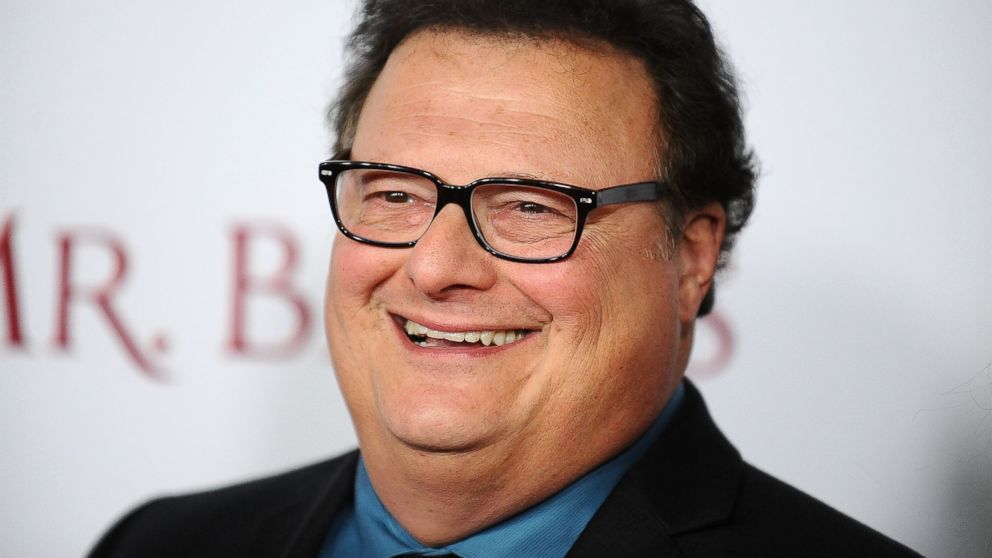Celebrity Death Hoaxes in the Internet Age
Memorable hoaxes and how to avoid being fooled again.

March 19, 2014— -- intro: The Internet killed off actor Wayne Knight recently -- just the latest celebrity to fall victim to a death hoax.
Knight, best known for his role as the neurotic mailman Newman in "Seinfeld," took to Twitter on Sunday to assure his fans that reports of his demise were greatly exaggerated: "Some of you will be glad to hear this, others strangely disappointed, but ... I am alive and well!"
A bogus article stating Knight died in a car accident on Saturday circulated quickly through Facebook and Twitter. The next day the actor confirmed it was a sham, but not without a few sarcastic comments regarding the surge in Twitter mentions. "Does someone have to DIE to trend? Geez! Thanks for all the love everybody. I didn't know you cared. Glad to be breathing!
False celebrity deaths are more common than ever, especially as schemes to drive traffic or gather information on Internet users proves lucrative, reeling in ad revenue for the bogus sites. Here are some of the most renowned celebrity death hoaxes and things to look out for next time you are “spicious”.
quicklist: 1Title: A Game of Probabilitytext: It’s bound to happen to any celebrity at least once, but unfortunately for some it’s a recurring event.
Actors Bill Cosby and Morgan Freeman are among those that have been targeted the most by scammers -– Bill Cosby being the favorite with at least five “accidents” to date. Both had several "R.I.P" Facebook pages spring up and spread the rumor.
In December 2012, Morgan Freeman refuted the claim by posting on his own Facebook page:
"Like Mark Twain, I keep reading that I have died. I hope those stories are not true... But if they are, I'm happy to report that my afterlife seems identical to my life when I was alive. I did go to Las Vegas to begin work on the film 'Last Vegas.' That is anything but a death sentence. -Morgan"Media: 22945711
quicklist: 2Title: The Same Bait Text: If you’ve ever been baited by more than one of these articles, you might have noticed they often have a few things in common -- an exotic location or bizarre sporting accident, for example. Or, more obviously, you’ll recognize the exact same story, word for word, from a previous sham. Such is the case with the hoax deaths of Natalie Portman in 2009, Tom Hanks in 2006, and most recently, Jeff Goldblum in January of this year. These celebrity "deaths" were quite tragic, all of them falling off a cliff in New Zealand. Media: 22945663
quicklist: 3Title: Check Your Sources TwiceText: You’re going to want to check your sources, Wikipedia included. While some of these perpetrators are overtly fake, others can be masterfully sly. For example, many bogus sources post under reputable website names that are only slightly altered, e.g., tmz.today and usmagazine.us.
But readers should remain cautious with sources like Wikipedia, too. The site has gained credibility over the years but the anyone-can-edit rules means it’s still fallible.
This proved to be the case when actor/comedian Sinbad was proclaimed dead after a heart attack in March 2007. Family, friends and fans freaked out after reading the article, making it one of the most widely believed false deaths.Media: 22945571
quicklist: 4Title: Twitter Misread Turns Into MisfeedText: These falsehoods haven’t always been the product of a scheming prankster. When the late Margaret Thatcher died in April 2013, the trending hashtag #NowThatchersDead lead to widespread confusion on Twitter.
Many read the hashtag as Now That Cher’s Dead, propagating the erroneous rumor that the American singer, rather than the former British prime minister, had died.Media: 22945812
quicklist: 5Title: The Heroic Side of Twitter Text: In the digital age, social media has become the fastest way to disseminate news to the largest audience. Accordingly, just as easily as it an spread lies, it can refute with the truth. Like Wayne Knight, many celebrities have put an end to premature mourning with memorable tweets, often colored with anger or sarcasm.
In 2011, Dwayne Johnson, a.k.a. “The Rock,” had one of those fatal New Zealand cliff falls. The actor retorted with: “I would love to meet the person who is starting rumors of my death -– to show them how a dead foot feels up their ass.”
In contrast, Russell Crowe sarcastically confirmed his death after a similar hoax tragedy in Austria in 2010.
“Unable to answer tweets fell off a mountain in Austria, all over red rover. Don’t know how I got there, but the media are never wrong. G’Bye.”Media: 22945421




